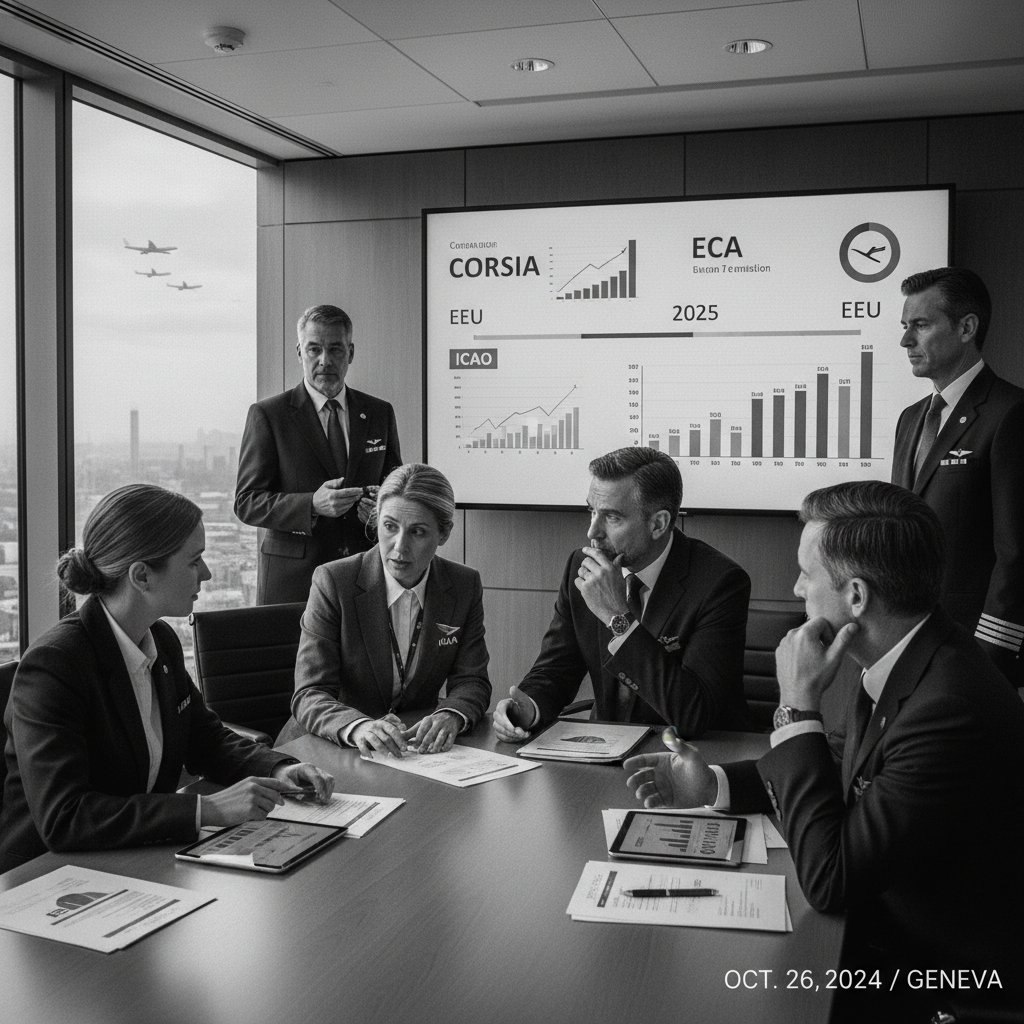Physical Address
304 North Cardinal St.
Dorchester Center, MA 02124
Physical Address
304 North Cardinal St.
Dorchester Center, MA 02124
Global aviation news tracker
Global aviation news tracker

ICAO’s 42nd Assembly in September 2025 put CORSIA compliance squarely in the spotlight for Western airlines.
The Carbon Offsetting and Reduction Scheme for International Aviation (CORSIA) compliance question is dominating discussions at the 42nd International Civil Aviation Organization (ICAO) Assembly in September 2025. Delegates from across the globe are wrestling with how airlines will meet offsets required under the scheme, which caps offset-free growth at 85% of 2019 emissions levels. European and North American carriers are raising alarms about available options.
Under CORSIA, operators must cover emissions above that 85% baseline either by purchasing Eligible Emissions Units (EEUs) or by deploying approved sustainable aviation fuels (SAF). However, the pool of verified EEUs is smaller than anticipated and SAF production remains constrained. That mismatch is forcing airlines to assess higher compliance costs and uncertain supply chains through 2026 and beyond.
The Assembly’s agenda reflects broader regulatory pressure. National regulators, environmental NGOs, and major airlines are debating tighter rules for which offsets qualify, verification standards and a possible timeline to accelerate SAF production incentives. For many carriers, the practical challenge isn’t intent but supply: there simply aren’t enough approved units or widely available SAF volumes to meet near-term obligations.
Airlines are signalling they may need transitional relief or clearer guidance on eligible offset types to avoid sudden cost spikes. ICAO’s member states are expected to consider amendments to transparency requirements and verification protocols before finalizing recommendations. While the Assembly does not itself set national law, its outcomes shape global norms that cascade to regulators in Brussels, Washington and Ottawa.
For passengers and industry watchers, the immediate consequence may be fare pressure or a faster push toward on-site and regional SAF production. The long-term aim remains decarbonization of international aviation, but delegates at the September 2025 Assembly made clear that policy ambition must be paired with pragmatic supply-side measures for CORSIA compliance to work in practice.